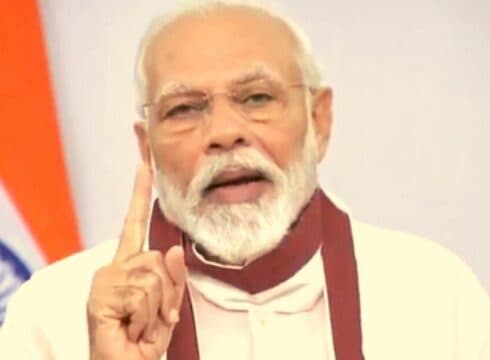Govt asks industry to find domestic options to manufacture drones, robotics
DPIIT also plans to set up toy labs, hold a national toy fair and innovative Indian-themed toys
Among the 25 focus sectors, a few will be identified as ‘priority’ with potential for import substitution and boosting exports
Inc42 Daily Brief
Stay Ahead With Daily News & Analysis on India’s Tech & Startup Economy
The government’s next push Aatmanirbhar Bharat or self-reliant scheme will focus on deeptech and mobility sectors among 25 other focus areas. The Department for Promotion for Industry and Internal Trade (DPIIT) says these focus sectors will help in import substitution and boost exports.
Officials quoted by ET say that DPIIT has been asked to lead the exercise, which will find domestic alternatives in drones, robotics and electric vehicle equipment. Among the total 25 focus sectors that the department has zeroed in on, a few sectors will be identified as ‘priority’ with potential for import substitution and boosting exports, and DPIIT would also look at any overlaps with similar initiatives of other ministries.
The fresh push will focus on domestic manufacturing of ceramics, glass, ethanol, ready to eat food, aluminium, gym equipment, toys and sporting goods, for which India still depends on Chinese imports.
Last Sunday (August 30) during his monthly ‘Mann ki Baat’ address, Prime Minister Narendra Modi speaking on the theme of Aatmanirbhar Bharat, had called upon start-ups and entrepreneurs to “team up for toys.” He pointed out that India’s share in the INR 7 lakh Cr global toy market is minuscule. Taking a leaf out of the PM’s idea, DPIIT also plans to set up toy labs, hold a national toy fair and innovative Indian-themed toys. The government is also planning to have strict quality controls for imported toys from September 1 to ensure that only products conforming to standards enter the country.
Earlier, the government shortlisted 12 sectors to focus on its self reliance push. The fresh impetus will also focus on local manufacture of furnitures, air-conditioners, leather, footwear, agrochemicals.
Amid the border standoff with China, the government recently released Draft Defence Production and Export Promotion Policy (DPEPP) 2020 aimed to develop a robust industrial ecosystem by giving preference to ‘Make in India’ initiatives. The policy seeks to create an industrial ecosystem to indigenise hitherto imported components such as alloys and special materials, and sub-assemblies for defence equipment.
Key Highlights
Funding Highlights
Investment Highlights
Acquisition Highlights
Financial Highlights
Note: We at Inc42 take our ethics very seriously. More information about it can be found here.






